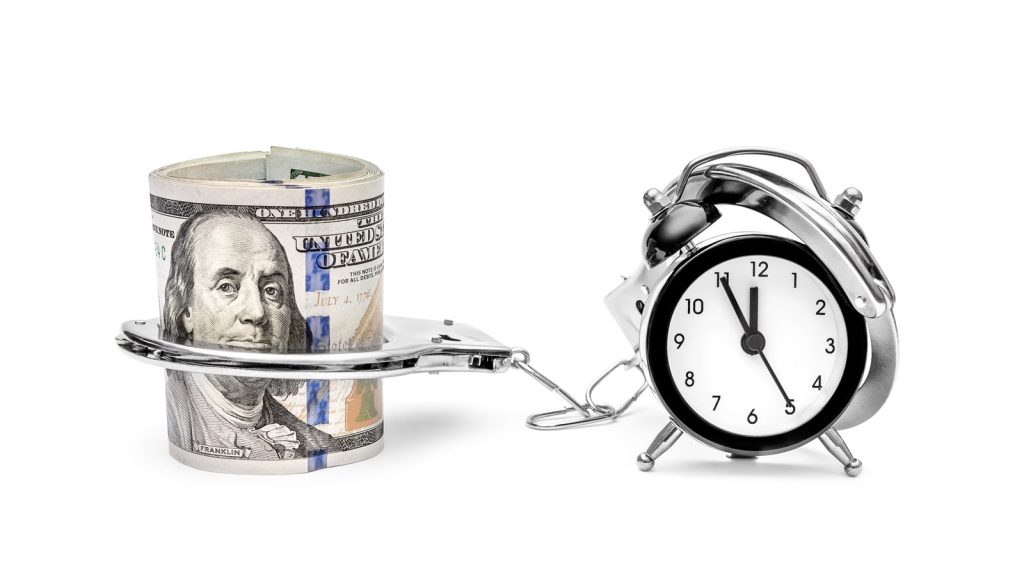What Happens If You Don’t Pay Your Bail Bond?
When someone is arrested, bail provides an opportunity for temporary release until the case is resolved. However, if the defendant or their cosigner fails to fulfill payment obligations on a bail bond, significant consequences arise. Below, we’ll explore what bail bonds entail, the obligations associated with them, and the repercussions if payments aren’t made.

Understanding Bail Bonds
A bail bond is a financial agreement involving the court, the defendant, and the bail bond company. It guarantees the defendant’s appearance in court and allows for their release until trial. When a family member or friend seeks a bail bond, they typically pay a percentage of the full bail amount (usually 10%) to a bond agent, who then posts bail on their behalf. This payment is non-refundable and serves as a fee for the bail service, covering the risk that the defendant may not attend court.
Financial Responsibility When Securing a Bail Bond
Securing a bail bond involves financial responsibility. The person (or cosigner) seeking the bond guarantees not only the initial fee but also potential additional payments if the defendant fails to meet court obligations. This financial agreement is legally binding, making it crucial for both the cosigner and defendant to understand their obligations.
Consequences of Non-Payment
If payments are not made on a bail bond, several consequences can impact the cosigner and defendant:
- Immediate Collection Efforts: When a payment is missed, bail bond agencies typically begin collection efforts. This often includes contacting the cosigner and defendant to settle the missed payment. Repeated non-payment can lead the bail bond agency to initiate more intensive collection methods, such as hiring a collection agency or filing a lawsuit.
- Legal Action: Bail bond companies may pursue legal action against the cosigner to recover the amount owed. This can result in a civil lawsuit, where the court may issue a judgment for the unpaid balance plus interest and additional fees.
- Asset Seizure or Wage Garnishment: If a judgment is obtained, the bail bond company can enforce it by garnishing wages or seizing assets. For example, they may place a lien on property owned by the cosigner. This makes it essential for cosigners to understand the financial impact of securing a bail bond.
- Impact on Credit Score: Failure to make payments on a bail bond can negatively impact the cosigner’s credit score. Missed payments and collection efforts will be reported to credit bureaus, lowering creditworthiness and affecting future loans or credit applications.
How Bail Bond Agents Respond to Non-Payment
At A Way Out Bail Bonds, the focus is on helping clients meet payment obligations. Our agents aim to resolve payment issues through clear communication and reasonable payment plans. Unlike traditional lenders, our priority is the defendant’s compliance with court requirements and supporting cosigners through the process.
What If the Defendant Fails to Appear in Court?
If the defendant fails to appear in court, also known as “jumping bail,” the bail bond company is liable for the entire bail amount to the court. To recover this, the agency may turn to the cosigner to cover the debt, leading to further financial and legal consequences.
Options to Avoid Non-Payment Issues
To avoid these repercussions, cosigners and defendants can work closely with the bail bond agency to establish manageable payment plans. Many bail bond companies, including A Way Out Bail Bonds, offer payment flexibility to assist clients through challenging times. Open communication with the bail bond agency is crucial to managing financial obligations effectively.
Free Bail Bond Advice and Support
Navigating the bail bond process can be complex, especially if payment issues arise. For those in need of free bail bond advice, A Way Out Bail Bonds provides guidance to help clients understand their rights, responsibilities, and options for securing release.
For expert bail bond assistance in Dallas County and Tarrant County, trust A Way Out Bail Bonds. Our licensed agents are available 24/7 to answer your questions and provide support. Contact us at (214) 760-9978 for Dallas County or (817) 261-2828 for Tarrant County to learn more about how we can help.
